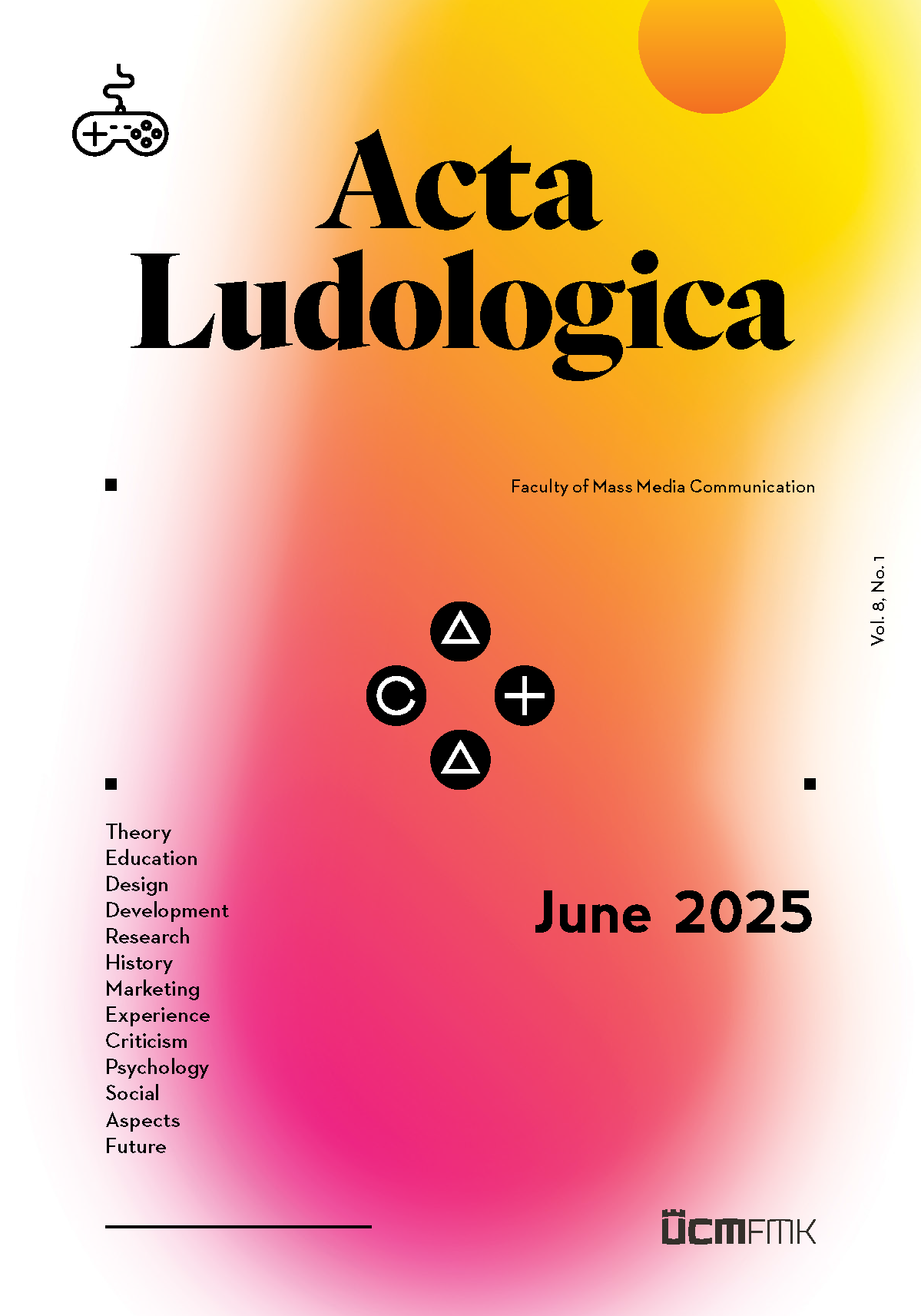KELLNER, D.: Media Spectacle. New York, London : Routledge, 2003, p. 15.
Reference in Bibliography:
KELLNER, D.: Media Spectacle. New York, London : Routledge, 2003.
JIRÁK, J., KÖPPLOVÁ, B.: Médiá a společnost. Praha : Portál, 2006, p. 100.
Reference in Bibliography:
JIRÁK, J., KÖPPLOVÁ, B.: Médiá a společnost. Praha : Portál, 2006.
VOJTEK, J. et al.: Dejiny svetových novinárstiev (anglického a amerického). Trnava : Fakulta masmediálnej komunikácie, Univerzita sv. Cyrila a Metoda v Trnave, 2010, p. 55.
Reference in Bibliography:
VOJTEK, J. et al.: Dejiny svetových novinárstiev (anglického a amerického). Trnava : Fakulta masmediálnej komunikácie, Univerzita sv. Cyrila a Metoda v Trnave, 2010.
Ilustrovaná encyklopédia ľudskej vzdelanosti. Bratislava : Reader´s Digest výber, 2009, p. 80.
Reference in Bibliography:
Ilustrovaná encyklopédia ľudskej vzdelanosti. Bratislava : Reader´s Digest výber, 2009.
HARTLEY, J.: Communication, Cultural and Media Studies: Key Concepts. 3rd Edition. New York, London : Routledge, p. 180.
Reference in Bibliography:
HARTLEY, J.: Communication, Cultural and Media Studies: Key Concepts. 3rd Edition. New York, London : Routledge, 2002.
MANOVICH, L.: The Language of New Media. Boston : MIT Press, 2001. [online]. [yyyy-mm-dd]. Available at: <http://www.manovich.net/LNM/Manovich.pdf>.
Reference in Bibliography:
MANOVICH, L.: The Language of New Media. Boston : MIT Press, 2001. [online]. [yyyy-mm-dd]. Available at: <http://www.manovich.net/LNM/Manovich.pdf>.
PETRANOVÁ, D.: Rozvíja mediálna výchova v školách kritické kompetencie žiakov? In Communication Today, 2011, Vol. 2, No. 1, p. 74.
Reference in Bibliography:
PETRANOVÁ, D.: Rozvíja mediálna výchova v školách kritické kompetencie žiakov? In Communication Today, 2011, Vol. 2, No. 1, p. 66-83. ISSN 1338-130X.
KATUŠČÁKOVÁ, M.: Vybrané aspekty vedeckej spolupráce a spoločného využívania znalostí. Odporúčania pre kolaboratórium v projekte Pamäť Slovenska. In Knižnica, 2013, Vol. 13, No. 1, p. 11. [online]. [yyyy-mm-dd]. Available at: <http://www.snk.sk/swift_data/source/casopis_kniznica/2012/10.pdf>.
Reference in Bibliography:
KATUŠČÁKOVÁ, M.: Vybrané aspekty vedeckej spolupráce a spoločného využívania znalostí. Odporúčania pre kolaboratórium v projekte Pamäť Slovenska. In Knižnica, 2013, Vol. 13, No. 1, p. 10-14. ISSN 1336-0965. [online]. [yyyy-mm-dd]. Available at: <http://www.snk.sk/swift_data/source/casopis_kniznica/2012/10.pdf>.
LULL, J.: Superculture for the Communication Age. In LULL, J. (ed.): Culture in the Communication Age. London, New York : Routledge, 2001, p. 133.
Reference in Bibliography:
LULL, J.: Superculture for the Communication Age. In LULL, J. (ed.): Culture in the Communication Age. London, New York : Routledge, 2001, p. 132-165.
ZILLMANN, D.: The Coming of Media Entertainment. In ZILLMANN, D., VORDERER, P. (eds.): Media Entertainment: The Psychology of Its Appeal. Mahwah, London : Lawrence Erlbaum, 2000, p. 6.
Reference in Bibliography:
ZILLMANN, D.: The Coming of Media Entertainment. In ZILLMANN, D., VORDERER, P. (eds.): Media Entertainment: The Psychology of Its Appeal. Mahwah, London : Lawrence Erlbaum, 2000, p. 1-20.
Reference in Bibliography: Reference in Bibliography: Reference in Bibliography: Reference in Bibliography: Reference in Bibliography: Reference in Bibliography: Reference in Bibliography: Reference in Bibliography: Reference in Bibliography: Reference in Bibliography: Reference in Bibliography: Reference in Bibliography: Reference in Bibliography: Reference in Bibliography: Reference in Bibliography: Reference in Bibliography: Reference in Bibliography: Reference in Bibliography: Reference in Bibliography: Reference in Bibliography: Reference in Bibliography: Reference in Bibliography: Footnote Reference: Reference in Bibliography: 1 A term digital game is used as the common name for all kinds of games – arcades, video games, computer games, mobile and handheld games, VR games, AR game, MMO games, etc.
SURNAME, N.: Article name. In SURNAME, N. (ed.): Title of proceedings. Place of edition : Publisher, posting date, page range. [online]. [Date of access, yyyy-mm-dd]. Available at: <URL/electronic address information>.
SURNAME, N.: Article name. In SURNAME, N. (ed.): Title of proceedings. Place of edition : Publisher, year of edition, range of article´s pages. ISBN. [online]. [Date of access, yyyy-mm-dd]. Available at: <URL/electronic address information>.
PAVELKA, J.: Možnosti a limity sémiotické a naratologické analýzy jako nástrojů interpretace. In RUSNÁK, J., BOČÁK, M. (eds.): Médiá a text II. Prešov : Prešovská Univerzita v Prešove, 2008, p. 165. [online]. [yyyy-mm-dd]. Available at: <http://www.pulib.sk/elpub2/FF/Bocak1/pdf_doc/pavelka.pdf>.
PAVELKA, J.: Možnosti a limity sémiotické a naratologické analýzy jako nástrojů interpretace. In RUSNÁK, J., BOČÁK, M. (eds.): Médiá a text II. Prešov : Prešovská univerzita v Prešove, 2008, p. 156-169. [online]. [yyyy-mm-dd]. Available at: <http://www.pulib.sk/elpub2/FF/Bocak1/pdf_doc/pavelka.pdf>.
HVÍŽĎALA, K.: Pasti české, slovenské i světové žurnalistiky: historické a současné. Paper presented at International scientific conference Megatrends and Media 2013 with subtitle Cultivation of Media – Opportunities and Barriers. Smolenice, presented on 27th March 2013.
HVÍŽĎALA, K.: Pasti české, slovenské i světové žurnalistiky: historické a současné. Paper presented at International scientific conference Megatrends and Media 2013 with subtitle Cultivation of Media – Opportunities and Barriers. Smolenice, presented on 27th March 2013.
GALAN, P.: Obchodníci s kilami. In Plus 7 dní, 2013, Vol. 23, No. 42, p. 86.
GALAN, P.: Obchodníci s kilami. In Plus 7 dní, 2013, Vol. 23, No. 42, p. 86-88. ISSN 1210-4040.
TOMA, B.: Banky zarobia na mobilných poplatkoch. Released on 3rd October 2013. [online]. [yyyy-mm-dd]. Available at: <http://peniaze.pravda.sk/ucty-a-karty/clanok/294962-banky-zarobia-na-mobilnych-poplatkoch>.
TOMA, B.: Banky zarobia na mobilných poplatkoch. Released on 3rd October 2013. [online]. [yyyy-mm-dd]. Available at: <http://peniaze.pravda.sk/ucty-a-karty/clanok/294962-banky-zarobia-na-mobilnych-poplatkoch>.
Worldwide Grosses. [online]. [yyyy-mm-dd]. Available at: <http://www.boxofficemojo.com/alltime/world/>.
Worldwide Grosses. [online]. [yyyy-mm-dd]. Available at: <http://www.boxofficemojo.com/alltime/world/>.
KELLNER, D.: Cultural Studies, Multiculturalism, and Media Culture. [online]. [yyyy-mm-dd]. Available at: <http://pages.gseis.ucla.edu/faculty/kellner/papers/SAGEcs.htm>.
KELLNER, D.: Cultural Studies, Multiculturalism, and Media Culture. [online]. [yyyy-mm-dd]. Available at: <http://pages.gseis.ucla.edu/faculty/kellner/papers/SAGEcs.htm>.
Zákon o vysielaní a retransmisii č. 308/2000 Z. z. zo 14. septembra 2000. [online]. [yyyy-mm-dd]. Available at: <http://www.rvr.sk/_cms/data/modules/download/1364909855_zakon_308-2000_ucinny_2013-01-01.pdf>.
Zákon o vysielaní a retransmisii č. 308/2000 Z. z. zo 14. septembra 2000. [online]. [yyyy-mm-dd]. Available at: <http://www.rvr.sk/_cms/data/modules/download/1364909855_zakon_308-2000_ucinny_2013-01-01.pdf>.
ALBRECHT, M.: Ako si hovorcovia a novinári zavarili. Released on 8th October 2013. [online]. [yyyy-mm-dd]. Available at: <http://marekalbrecht.blog.sme.sk/c/339283/Ako-si-hovorcovia-a-novinari-zavarili.html>.
ALBRECHT, M.: Ako si hovorcovia a novinári zavarili. Released on 8th October 2013. [online]. [yyyy-mm-dd]. Available at: <http://marekalbrecht.blog.sme.sk/c/339283/Ako-si-hovorcovia-a-novinari-zavarili.html>.
Trhové podiely televízií, počúvanosť rádií, predajnosť tlače a návštevnosť internetových portálov. [online]. [yyyy-mm-dd]. Available at: <http://medialne.etrend.sk/televizia-grafy-a-tabulky.html>.
Trhové podiely televízií, počúvanosť rádií, predajnosť tlače a návštevnosť internetových portálov. [online]. [yyyy-mm-dd]. Available at: <http://medialne.etrend.sk/televizia-grafy-a-tabulky.html>.
PETRANOVÁ, D.: Mediálna výchova v procese edukácie na Slovensku so zameraním na rozvoj kompetencie kritického myslenia. [Dissertation Thesis]. Nitra : Filozofická fakulta Univerzity Konštantína Filozofa v Nitre, 2010, p. 40.
PETRANOVÁ, D.: Mediálna výchova v procese edukácie na Slovensku so zameraním na rozvoj kompetencie kritického myslenia. [Dissertation Thesis]. Nitra : Filozofická fakulta Univerzity Konštantína Filozofa v Nitre, 2010. 142 p.
GREČKOVÁ, M.: Premeny mediálneho obrazu českých olympijských športovcov. [Master´s Thesis]. Brno : Fakulta sociálních studií Masarykovy univerzity v Brně, 2013, p. 60. [online]. [yyyy-mm-dd]. Available at: <http://is.muni.cz/th/397299/fss_m/Greckova_D_P.pdf>.
GREČKOVÁ, M.: Premeny mediálneho obrazu českých olympijských športovcov. [Master´s Thesis]. Brno : Fakulta sociální studií Masarykovy univerzity, 2013. 102 p. [online]. [yyyy-mm-dd]. Available at <http://is.muni.cz/th/397299/fss_m/Greckova_D_P.pdf>.
PLENCNER, A.: Populárna kultúra – definície a základné znaky. Politická koncepcia populárnej kultúry Johna Fiskeho. [Electronic Document]. Bratislava : Univerzita Komenského, 2007, p. 4.
PLENCNER, A.: Populárna kultúra – definície a základné znaky. Politická koncepcia populárnej kultúry Johna Fiskeho. [Electronic Document]. Bratislava : Univerzita Komenského, 2007. 12 p.
Oprah Interviews J. K. Rowling (Full Video) HD. [online]. [yyyy-mm-dd]. Available at <http://www.youtube.com/watch?v=Pxh2sgg_iyA>.
Oprah Interviews J. K. Rowling (Full Video) HD. [online]. [yyyy-mm-dd]. Available at: <http://www.youtube.com/watch?v=Pxh2sgg_iyA>.
BEDNÁROVÁ, L. (ed.): Hudba sveta_FM. Broadcast on 2nd October 2013. [online]. [yyyy-mm-dd]. Available at: <http://213.215.116.181:8001/fm/2013-09-23/414-Hudbasveta_FM-20-00.mp3>.
BEDNÁROVÁ, L. (ed.): Hudba sveta_FM. Broadcast on 2nd October 2013. [online]. [yyyy-mm-dd]. Available at: <http://213.215.116.181:8001/fm/2013-09-23/414-Hudbasveta_FM-20-00.mp3>.
KREJČA, H. (Director of the Centre of News and Current Affairs): Televízne noviny. [The Main Evening Newscasting Programme of TV Markíza]. Broadcast on 28th September 2013. Bratislava : Televízia Markíza, 2013.
KREJČA, H. (Director of the Centre of News and Current Affairs): Televízne noviny. [The Main Evening Newscasting Programme of TV Markíza]. Broadcast on 28th September 2013. Bratislava : Televízia Markíza, 2013.
ADELE: Someone Like You. Track No. 11 on the Studio Album 21 by Adele. [CD]. New York : Columbia Records, 2011.
ADELE: Someone Like You. Track No. 11 on the Studio Album 21 by Adele. [CD]. New York : Columbia Records, 2011.
KERSHNER, I. (Director): Star Wars Episode V – The Empire Strikes Back (1980 & 2004 Versions, 2-Disc Widescreen Edition). [DVD]. Los Angeles : Twentieth Century Fox Home Entertainment, 2006.
KERSHNER, I. (Director): Star Wars Episode V – The Empire Strikes Back (1980 & 2004 Versions, 2-Disc Widescreen Edition). [DVD]. Los Angeles : Twentieth Century Fox Home Entertainment, 2006.
BIER, S. (Directed by): Bird Box. [VOD]. Los Gatos, CA : Netflix, 2018.
BIER, S. (Directed by): Bird Box. [VOD]. Los Gatos, CA : Netflix, 2018.
HWANG, D.-H. (Created by): Squid Game (series). [VOD]. Los Gatos, CA : Netflix, 2021.
HWANG, D.-H. (Created by): Squid Game (series). [VOD]. Los Gatos, CA : Netflix, 2021.
ID SOFTWARE: Doom (Xbox version). [digital game]. Santa Monica : Activision, 2005.
ID SOFTWARE: Doom (Xbox version). [digital game]. Santa Monica : Activision, 2005.
Y8.COM: Dead Void. [digital game]. [yyyy-mm-dd]. Available at: <http://www.superhry.cz/hra/11321-dead-void>.
Y8.COM: Dead Void. [digital game]. [yyyy-mm-dd]. Available at: <http://www.superhry.cz/hra/11321-dead-void>.
ID SOFTWARE: Doom. [digital game]. New York : GT Interactive, 1993.
ID SOFTWARE: Doom. [digital game]. New York : GT Interactive, 1993.

